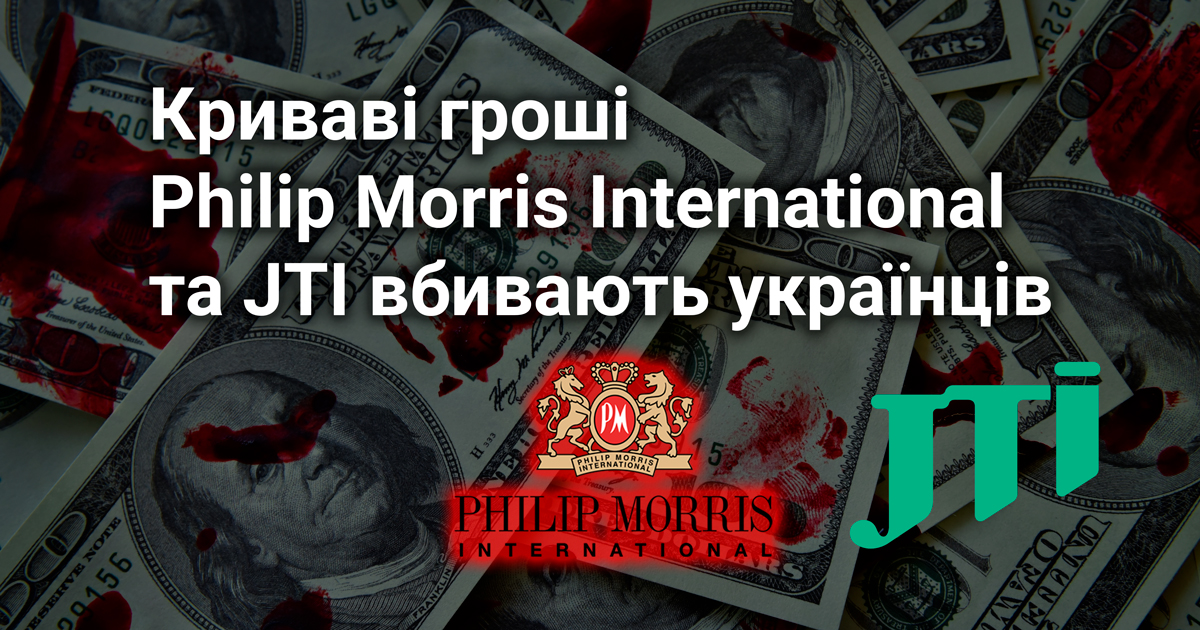There is a direct correlation between tobacco corporations and the war in Ukraine, as they play a very important role by paying taxes to the aggressor country.
“There are four transnational corporations in the world, and they occupy more than 90% of the cigarette and other tobacco products market worldwide. There are four of them competing on the shelves, but they are super allies when it comes to fighting the state or when it comes to preventing any anti-tobacco changes or decisions. These are Philip Morris International, as one of the largest companies, JTI, British American Tobacco, and Imperial Tobacco.
All of these companies were present in both Ukraine and Russia at the time of the full-scale attack. After all, these are tens of millions of smokers who are willing to pay money because smoking is an addiction, and of course, tobacco corporations entered Russia and very quickly reached an agreement with the Russian government, and very quickly the Russian government was incorporated into tobacco companies, and tobacco companies actually became part of the Russian structure. A striking example of this is Sergei Naryshkin, the head of the Russian Foreign Intelligence Service, who was a member of the board of directors of the Philip Morris Ijora tobacco factory for almost 10 years (from 1996 to 2004),” – said Dmytro Kupyra, executive director of the NGO “Life”, in an interview with Yevhen Plinsky.
“After the full-scale invasion, many international companies operating in Russia left the market of the terrorist country, but not the tobacco giants.
Philip Morris, JTI, Imperial Tobacco, British American Tobacco, which are the largest taxpayers to the Russian budget,” said investigative journalist Yevhen Plinsky. In other words, by filling the treasury of the Russian Federation, tobacco corporations are actually killing Ukrainians with this “blood money.”
Dmytro Kupyra added that according to an investigation published by The Telegraph, by the fall of 2022, that is, during the six months of Russia’s full-scale attack on Ukraine, tobacco companies had paid more than $7 billion to the Russian Federation’s treasury.
Plinsky, in turn, noted that the approximate budget of the Russian army is 65-66 billion dollars, i.e. more than 10% of the defense budget of the aggressor country is made up of money from tobacco companies such as Philip Morris International, JTI, etc.
The Kyiv School of Economics has estimated that the money Philip Morris International earned for Russia in 2022 could buy 4,900 Kalibr missiles, 78 fifth-generation Su-57 fighters, or 1,089 T-90 tanks.
The Philip Morris International tobacco company not only did not lose money from the war, but began to earn even more. Thus, according to the financial statements of the Russian subsidiary of Philip Morris, the volume of investments of Philip Morris International in Russia exceeded 2 billion dollars. In the first year of Russia’s full-scale invasion of Ukraine alone, the company’s revenue grew by 8% to 140.3 billion rubles.

